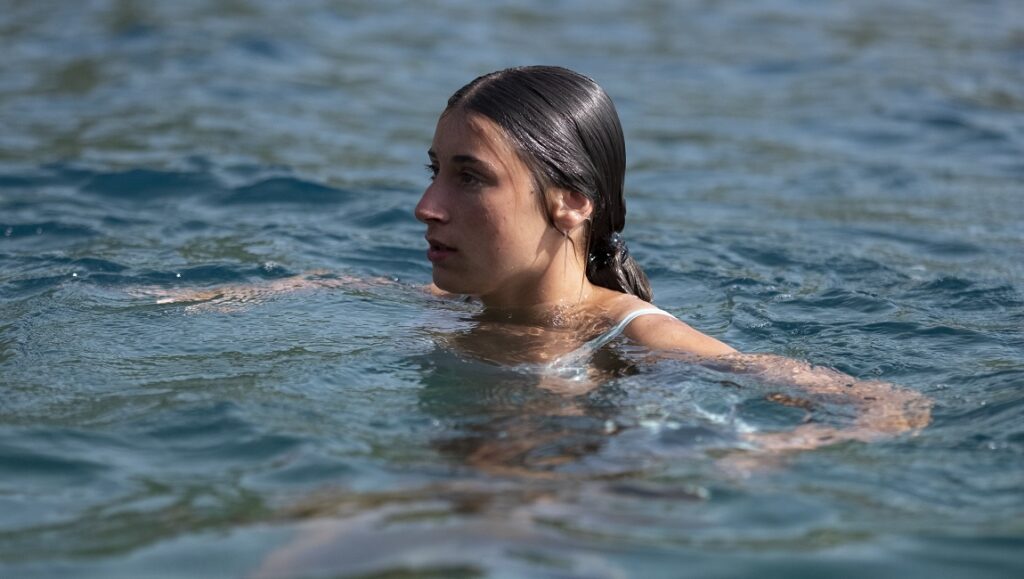Murina‘s second half almost helps the film realize its pursuit of unsettling inquiry, but outside of its opening and closing shots, there’s too little formal inventiveness and too many trite motivating dynamics.
In the opening shot of Antoneta Alamat Kusijanović’s debut feature Murina, an adaptation of her short Into the Blue, we patiently sit underneath the waves, light refracting off the surface and manifesting illusions of stingray-like patterns that move in tandem with the tide. At first hypnotic, the image weaves in and out of regard, the geography of the space becoming more legible by the second, the illusion losing its dominance, followed closely by our focal characters, Julija and Ante (daughter and father, respectively), diving toward us, the camera failing to maneuver around their momentum and forcing, finally, a cut. In manners, this opening shot foreshadows the winding tonality of the film itself. Murina centers Julija as she cautiously schemes to replace her abhorrent patriarch with his lax, inviting friend who shares a mysterious, sensual history with her mother. Initially fatigued by trite dynamics — the father’s incessant abuse both exhausting and, lacking imaginative formal presentation, derivative — the film’s austerity comes to inform a haggardness that weighs down any empathic response, each facet of this drama performing banality. What’s most obstructing to the film is its often handheld cinematography where medium close-ups and medium-wide shots engage in exchanges of apathy. There’s a lack of vitality in its compositional intentions that wears the work out, rendering intimate drama into platitudinous friction.
It’s only come the hour mark that the illusory affects of the opening shot suddenly emerge from their dormancy. Genre codes take a breakneck shift into the territory of thriller after an extended, anomalous sequence of silent underwater exchange. Reemerging from the depths, Julija domineers her plot toward familial implosion, whilst her father and mother interrupt her intentions via berating and lecturing that the capacity she has for understanding the dynamics at play is immensely deficient due to the plain fact of her youth, and therein her lack of context. How is she to know the interplay of the adults around her? Does her anguish not count for something? Is the abuse she must swallow not a faculty to consider under the matter of their socio-economic position, which her parents are most motivated by? There’s an intricate game of subjective positionality being played here, where the broad moralizing of the first hour has now been replaced by an unsteady rhetoric of intersectional quandary. Julija suffers at the hands of her father, but what is she to do? Kusijanović utilizes cinematic genre codes, familiar to audiences with enough literacy behind them, to reconfigure a stark naturalism into an invasive thought experiment. What, precisely, is to be made of Julija’s position? To question one’s protagonist in the flux of ethical consideration is a kind of vigorous, incisive decision that overcomes the overt writerly intentions of the piece. Codes are harnessed, but these are explicitly narrative codes, for the only gesture of formal inquisitiveness lies in the opening and closing shots. Overall, however, there remains an unwelcome broadness to the catalysts of such questions, where not much of a dialectic can be formed, stunting the film from articulating anything much of its own.


Comments are closed.